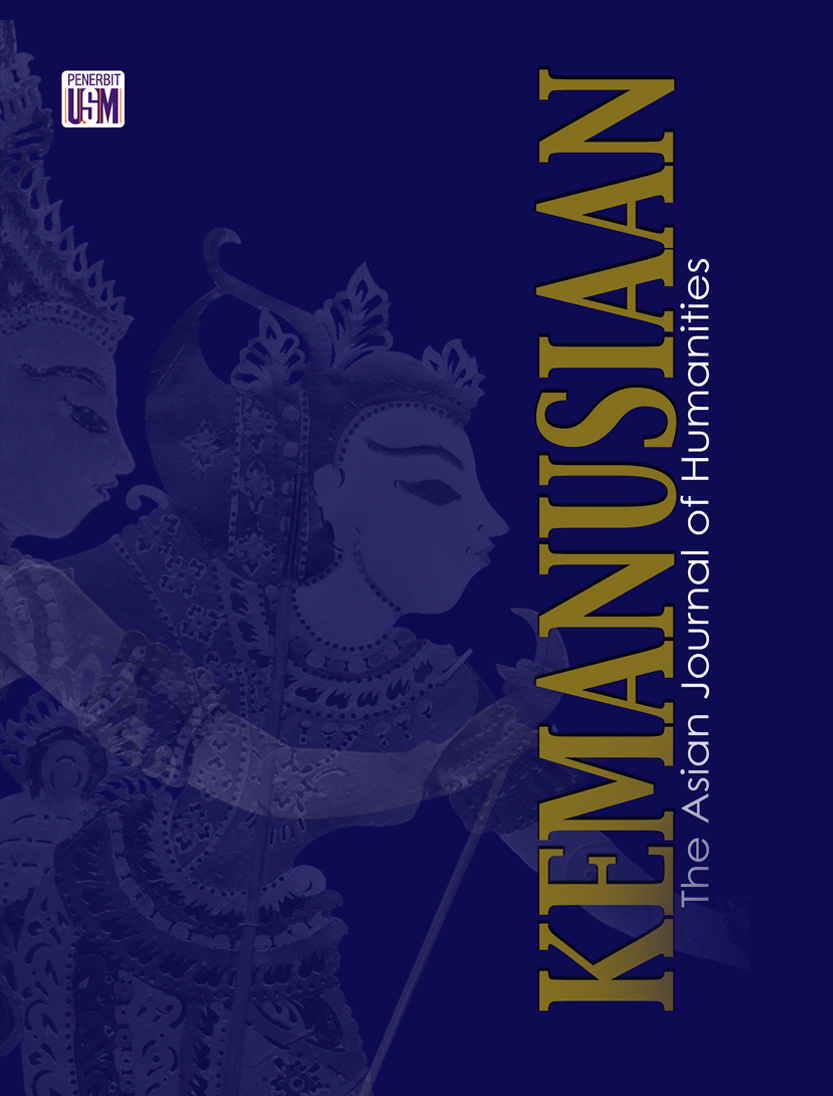KEMANUSIAAN
The Asian Journal of Humanities
Published by
Penerbit Universiti Sains Malaysia
| Past Issue - Volume 15, 2008 |
EDITORIAL
This volume is the inaugural edition of Kemanusiaan The Asian Journal of Humanities, a publication of the Penerbit Universiti Sains Malaysia. The journal, formerly known as Jurnal Ilmu Kemanusiaan (Journal of Humanities), was first published in 1994. After 14 volumes of articles and writings by a pool of academics from the region, Asia Pacific and Europe, the challenges in the global academic scenario motivated the restructuring of the journal to make it known internationally. The reformation entailed not just the reorganisation of the physical and technical structures of the journal but also more importantly re-thinking its focus and name. Kemanusiaan, a Malay word which encapsulates humanities and being humanitarian, is appropriate as the name of the journal. Whilst the name Kemanusiaan captures the scope of the discipline, the inclusion of the word Asian in the title provides a regional focus. This makes the journal a fitting forum for academics writing on issues in the humanities in Asia as well as aspects that deal with the humanities in non-Asian contexts particularly ones that concern the relationships between the two areas.
n this inaugural volume, four articles by academics from the Asia Pacific and America covering the issues of higher education, geography and philosophy are included. The first contribution is based on a study on the Malaysian Professoriate. It attempts to delineate the changes in the profession and discusses these within the current global context. The second article focuses on geomorphology and it attempts to foreground environmentally-friendly approaches to river management that have important impact on humanity. The third and fourth contributions discuss issues in the area of philosophy. In the third article, the author argues that whilst religion, ethics and the meaning of life are intertwined, those who are non-believers can still live an ethical and meaningful life in the present postmodern context. In the last article, the author argues that moral perspectives should not be limited only to "the impartial concern for all who share a common humanity with us" but also those who are "strangers to us."
- The Shifting Boundaries of the Academic Profession: The Malaysian Professoriate in Comparative Perspective
William G.Tierney
Abstract: In this article, the author looks at the changing nature of academic work by analysing a survey of Malaysian faculty in public universities. The Changing Academic Professions project is a first attempt to delineate the opinions and backgrounds of the Malaysian professoriate. The study is part of a larger cross-national project that involves 22 nations. The article first provides literature pertaining to academic work, and then discusses the methodology for the study. The author outlines five topics yielded from the data: (1) faculty mobility, (2) faculty satisfaction, (3) teaching satisfaction, (4) faculty power, and (5) academic freedom. The article then explores the methodological problems of the data and considers how these problems might be overcome in order to provide robust information about the changing professoriate in Malaysia.
Keywords and phrases: Faculty, Academic work, University reform
Download
- Geomorphology and River Management
Gary Brierley
-
Abstract: Engineering-dominated practices, visible in a "command and control" outlook on natural systems, have induced enormous damage to the environment. Biodiversity losses and declining provision of ecosystem services are testimony to the non-sustainable outcomes brought about by such practices. More environmentally friendly approaches that promote a harmonious relationship between human activities and nature are required. Moves towards an "ecosystem approach" to environmental management require coherent (integrative) scientific guidance. Geomorphology, the study of the form of the earth, provides a landscape template with which to ground this process. This way of thinking respects the inherent diversity and complexity of natural systems. Examples of the transition toward such views in environmental practice are demonstrated by the use of science to guide river management, emphasising applications of the River Styles framework.
Keywords and phrases: Biodiversity, Sustainability, Human impact, Ecosystem management, River health
![]() Download
Download
- Religion, Ethics and the Meaning of Life
Rolando M. Gripaldo
Abstract: Religion as a concept has generated some nuances that retain the sense of religiosity or spirituality while negating the idea of a personal anthropomorphic deity. One should therefore be clear as to the usage of this concept in a given context. While religion, ethics, and the meaning of life are intertwined, there are now variants wherein nonbelievers can themselves be ethical and lead meaningful lives. The author believes that the discarded theistic deity can be redeemed and given a reinterpretation that is suitable to our contemporary postmodern setting.
Keywords and phrases: Religion, Ethics, The meaning of life
Download
- The Moral Limits of Impartiality
Ten Chin Liew
Abstract: Our moral perspective should not be limited to the impartial concern for all who share a common humanity with us. It should also include the value of partiality embedded in personal relationships of love and friendship. These personal relationships give shape and meaning to our lives, and they also provide us with a sense of identity. The values that underpin our common humanity are based on the universal features of all human beings, including those who are strangers to us. On the other hand, our special relationships are dependent upon features that distinguish our friends and loved ones from others. These relationships grow out of shared experiences and commitments, and are the products of specific times and places. A balanced moral life will not seek to place one set of values over the other, but will instead have two distinct spheres for both an impartial love of humanity, as well as for the partialities of our particular attachments and special relationships.
Keywords and phrases: Self-interest, Impartiality, Common humanity, Cosmopolitanism, Personal relationships
Download
- Thesis Abstracts
 Download
Download


